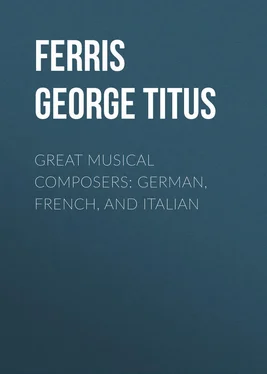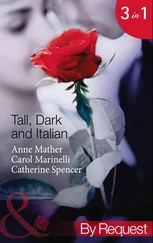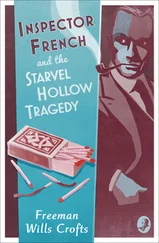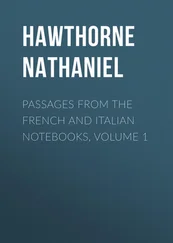George Ferris - Great Musical Composers - German, French, and Italian
Здесь есть возможность читать онлайн «George Ferris - Great Musical Composers - German, French, and Italian» — ознакомительный отрывок электронной книги совершенно бесплатно, а после прочтения отрывка купить полную версию. В некоторых случаях можно слушать аудио, скачать через торрент в формате fb2 и присутствует краткое содержание. Жанр: music_dancing, foreign_antique, foreign_prose, на английском языке. Описание произведения, (предисловие) а так же отзывы посетителей доступны на портале библиотеки ЛибКат.
- Название:Great Musical Composers: German, French, and Italian
- Автор:
- Жанр:
- Год:неизвестен
- ISBN:нет данных
- Рейтинг книги:3 / 5. Голосов: 1
-
Избранное:Добавить в избранное
- Отзывы:
-
Ваша оценка:
- 60
- 1
- 2
- 3
- 4
- 5
Great Musical Composers: German, French, and Italian: краткое содержание, описание и аннотация
Предлагаем к чтению аннотацию, описание, краткое содержание или предисловие (зависит от того, что написал сам автор книги «Great Musical Composers: German, French, and Italian»). Если вы не нашли необходимую информацию о книге — напишите в комментариях, мы постараемся отыскать её.
Great Musical Composers: German, French, and Italian — читать онлайн ознакомительный отрывок
Ниже представлен текст книги, разбитый по страницам. Система сохранения места последней прочитанной страницы, позволяет с удобством читать онлайн бесплатно книгу «Great Musical Composers: German, French, and Italian», без необходимости каждый раз заново искать на чём Вы остановились. Поставьте закладку, и сможете в любой момент перейти на страницу, на которой закончили чтение.
Интервал:
Закладка:
While at Hamburg Handel’s first two operas were composed, “Almira” and “Nero.” Both of these were founded on dark tales of crime and sorrow, and, in spite of some beautiful airs and clever instrumentation, were musical failures, as might be expected.
Handel had had enough of manufacturing operas in Germany, and so in July 1706 he went to Florence. Here he was cordially received; for Florence was second to no city in Italy in its passion for encouraging the arts. Its noble specimens of art creations in architecture, painting, and sculpture produced a powerful impression upon the young musician. In little more than a week’s time he composed an opera, “Rodrigo,” for which he obtained one hundred sequins. His next visit was to Venice, where he arrived at the height of the carnival. Whatever effect Venice, with its weird and mysterious beauty, with its marble palaces, façades, pillars, and domes, its magnificent shrines and frescoes, produced on Handel, he took Venice by storm. Handel’s power as an organist and a harpsichord player was only second to his strength as a composer, even when, in the full zenith of his maturity, he composed the “Messiah” and “Judas Maccabæus.”
“Il caro Sassone,” the dear Saxon, found a formidable opponent as well as dear friend in the person of Scarlatti. One night at a masked ball, given by a nobleman, Handel was present in disguise. He sat at the harpsichord, and astonished the company with his playing; but no one could tell who it was that ravished the ears of the assembly. Presently another masquerader came into the room, walked up to the instrument, and called out: “It is either the devil or the Saxon!” This was Scarlatti, who afterwards had with Handel, in Florence and Rome, friendly contests of skill, in which it seemed difficult to decide which was victor. To satisfy the Venetian public, Handel composed the opera “Agrippina,” which made a furore among all the connoisseurs of the city.
So, having seen the summer in Florence and the carnival in Venice, he must hurry on to be in time for the great Easter celebrations in Rome. Here he lived under the patronage of Cardinal Ottoboni, one of the wealthiest and most liberal of the Sacred College. The cardinal was a modern representative of the ancient patrician. Living himself in princely luxury, he endowed hospitals and surgeries for the public. He distributed alms, patronised men of science and art, and entertained the public with comedies, operas, oratorios, puppet-shows, and academic disputes. Under the auspices of this patron, Handel composed three operas and two oratorios. Even at this early period the young composer was parting company with the strict old musical traditions, and his works showed an extraordinary variety and strength of treatment.
From Rome he went to Naples, where he spent his second Italian summer, and composed the original Italian “Aci e Galatea,” which in its English version, afterwards written for the Duke of Chandos, has continued a marked favourite with the musical world. Thence, after a lingering return through the sunny land where he had been so warmly welcomed, and which had taught him most effectually, in convincing him that his musical life had nothing in common with the traditions of Italian musical art, he returned to Germany, settling at the court of George of Brunswick, Elector of Hanover, and afterwards King of England. He received commission in the course of a few months from the elector to visit England, having been warmly invited thither by some English noblemen. On his return to Hanover, at the end of six months, he found the dull and pompous little court unspeakably tiresome after the bustle of London. So it is not to be marvelled at that he took the earliest opportunity of returning to the land which he afterwards adopted. At this period he was not yet twenty-five years old, but already famous as a performer on the organ and harpsichord, and as a composer of Italian operas.
When Queen Anne died and Handel’s old patron became King of England, Handel was forbidden to appear before him, as he had not forgotten the musician’s escapade; but his peace was at last made by a little ruse. Handel had a friend at court, Baron Kilmansegge, from whom he learned that the king was, on a certain day, going to take an excursion on the Thames. So he set to work to compose music for the occasion, which he arranged to have performed on a boat which followed the king’s barge. As the king floated down the river he heard the new and delightful “Water-Music.” He knew that only one man could have composed such music; so he sent for Handel, and sealed his pardon with a pension of two hundred pounds a-year.
II
Let us take a glance at the society in which the composer moved in the heyday of his youth. His greatness was to be perfected in after-years by bitter rivalries, persecution, alternate oscillations of poverty and affluence, and a multitude of bitter experiences. But at this time Handel’s life was a serene and delightful one. Rival factions had not been organised to crush him. Lord Burlington lived much at his mansion, which was then out of town, although the house is now in the heart of Piccadilly. The intimate friendship of this nobleman helped to bring the young musician into contact with many distinguished people.
It is odd to think of the people Handel met daily without knowing that their names and his would be in a century famous. The following picture sketches Handel and his friends in a sprightly fashion: —
“Yonder heavy, ragged-looking youth standing at the corner of Regent Street, with a slight and rather more refined-looking companion, is the obscure Samuel Johnson, quite unknown to fame. He is walking with Richard Savage. As Signor Handel, ‘the composer of Italian music,’ passes by, Savage becomes excited, and nudges his friend, who takes only a languid interest in the foreigner. Johnson did not care for music; of many noises he considered it the least disagreeable.
“Toward Charing Cross comes, in shovel-hat and cassock, the renowned ecclesiastic, Dean Swift. He has just nodded patronisingly to Bononcini in the Strand, and suddenly meets Handel, who cuts him dead. Nothing disconcerted, the dean moves on, muttering his famous epigram —
‘Some say that Signor Bononcini,
Compared to Handel, is a ninny;
While others vow that to him Handel
Is hardly fit to hold a candle.
Strange that such difference should be
’Twixt tweedledum and tweedledee.’
“As Handel enters the ‘Turk’s Head’ at the corner of Regent Street, a noble coach and four drives up. It is the Duke of Chandos, who is inquiring for Mr. Pope. Presently a deformed little man, in an iron-grey suit, and with a face as keen as a razor, hobbles out, makes a low bow to the burly Handel, who, helping him into the chariot, gets in after him, and they drive off together to Cannons, the duke’s mansion at Edgeware. There they meet Mr. Addison, the poet Gay, and the witty Arbuthnot, who have been asked to luncheon. The last number of the Spectator is on the table, and a brisk discussion soon arises between Pope and Addison concerning the merits of the Italian opera, in which Pope would have the better if he only knew a little more about music, and could keep his temper. Arbuthnot sides with Pope in favour of Mr. Handel’s operas; the duke endeavours to keep the peace. Handel probably uses his favourite exclamation, ‘Vat te tevil I care!’ and consumes the recherché wines and rare viands with undiminished gusto.
“The Magnificent, or the Grand Duke, as he was called, had built himself a palace for £230,000. He had a private chapel, and appointed Handel organist in the room of the celebrated Dr. Pepusch, who retired with excellent grace before one manifestly his superior. On week-days the duke and duchess entertained all the wits and grandees in town, and on Sundays the Edgeware Road was thronged with the gay equipages of those who went to worship at the ducal chapel and hear Mr. Handel play on the organ.
Читать дальшеИнтервал:
Закладка:
Похожие книги на «Great Musical Composers: German, French, and Italian»
Представляем Вашему вниманию похожие книги на «Great Musical Composers: German, French, and Italian» списком для выбора. Мы отобрали схожую по названию и смыслу литературу в надежде предоставить читателям больше вариантов отыскать новые, интересные, ещё непрочитанные произведения.
Обсуждение, отзывы о книге «Great Musical Composers: German, French, and Italian» и просто собственные мнения читателей. Оставьте ваши комментарии, напишите, что Вы думаете о произведении, его смысле или главных героях. Укажите что конкретно понравилось, а что нет, и почему Вы так считаете.












